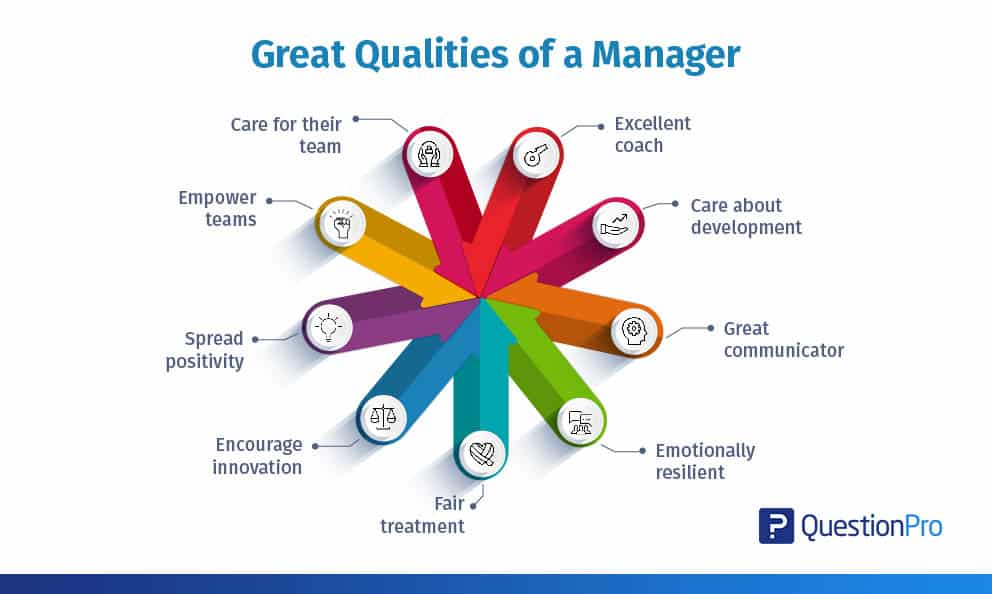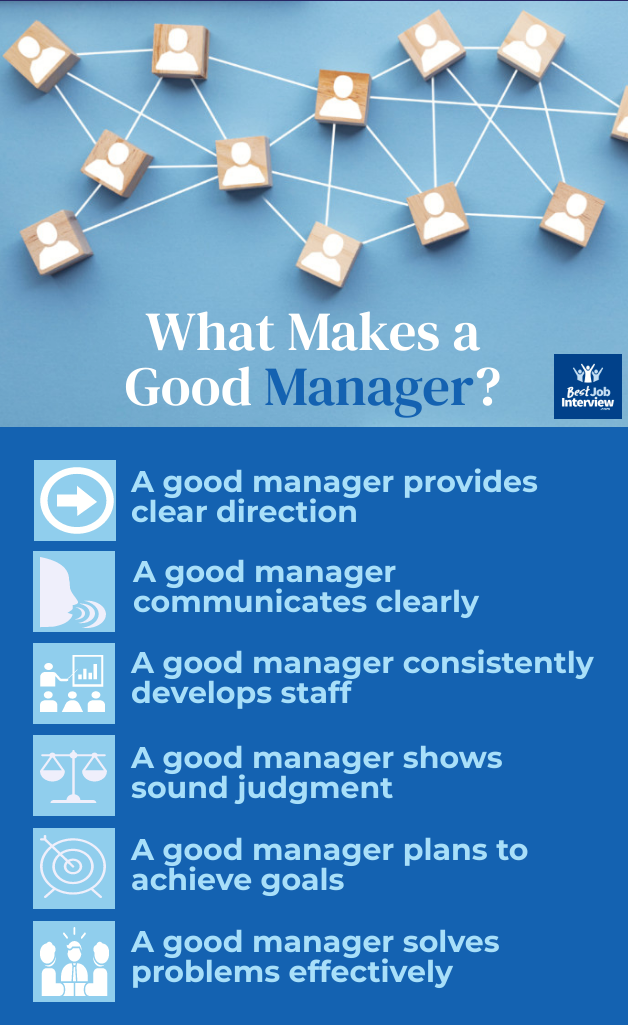What Makes A Great Manager
The most successful managers strive to develop skills that will empower them to lead effectively By examining the common skill set that all good managers have you can take the steps necessary to increase your own potential In this article we discuss the top 12 qualities that make a good manager What do great managers do differently? Though we each have unique qualities, there are a few key traits that all good managers focus on: clarity, trust, and openness. As you make your.

What makes a good manager There are dozens of factors that promote effective leadership but some characteristics clear communication and work life balance for example set great managers apart from good ones Here are eight common qualities effective leaders share What Great Managers Do. Managing employees. What Great Managers Do. Great leaders tap into the needs and fears we all share. Great managers, by contrast, perform their magic by.

What Makes A Great Manager
Learn what makes a great manager from the world s best managers from some of the world s most engaged organizations Every year Gallup client organizations that meet the award criteria are What makes a good manager . I ll tell you what makes a great manager a great manager has idlehearts what makes a great manager .

Sketchnotes What Makes A Manager Great

What Makes A Good Manager Job Interview Questions
Being a good manager means more than just completing administrative tasks it s also about how you support your team and get the most out of them According to Deborah Sweeney president and GM 1. Align your team with organizational goals. Keep your team in the loop on your organization’s goals. Companies constantly adapt to accommodate regulations or beat competitors to market. Thankfully, your team is surely bright, quick, and adaptable. Show the members of your team how their work fits into the.
1 Building Trust A great manager builds a foundation of trust by creating a culture of authenticity mutual accountability connection respect and fun The team is inspired and empowered to That means, taking ownership of meeting your teams’ physical, emotional, and environmental needs and getting to the root cause of the underlying issues. Take the lead: Not everyone on your team .